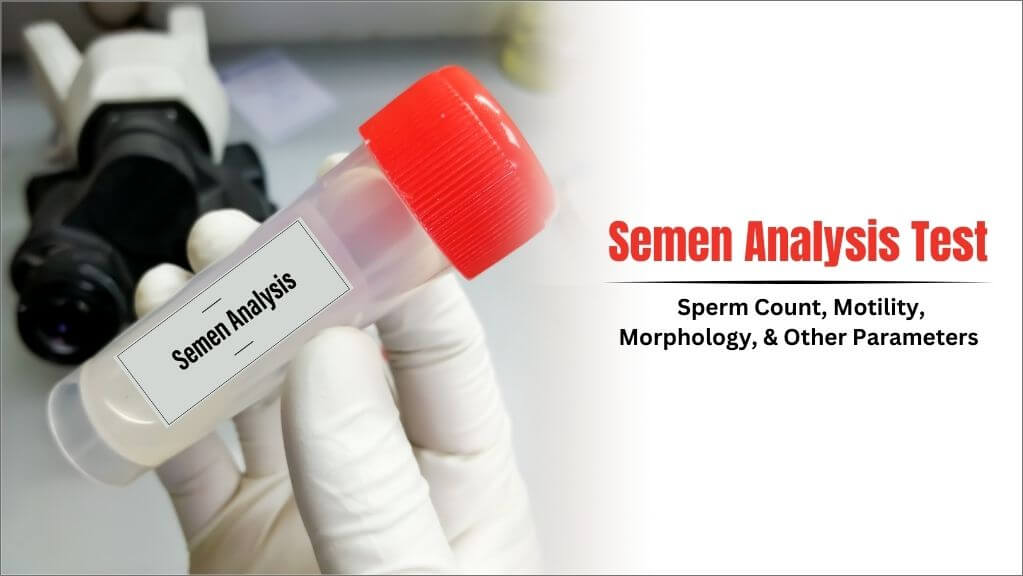
Semen analysis is a crucial diagnostic test conducted to assess the health and fertility of a man’s reproductive system. It involves the examination of a semen sample to evaluate various parameters that play a key role in male fertility. This comprehensive analysis provides valuable insights into the quantity and quality of sperm, aiding in the identification of potential reproductive issues. In this blog with Gaudium IVF, the IVF Center in Bengaluru we will delve into various aspect of semen analysis test.
Sperm Count
One of the primary components evaluated in a semen analysis is sperm count. Sperm count refers to the number of sperm present in one milliliter of semen. A normal sperm count typically ranges from 15 to 200 million sperm per milliliter. A count below this range may indicate a condition called oligospermia, or low sperm count, which can significantly impact fertility.
Sperm Motility
Sperm motility, another critical factor, assesses the ability of sperm to move effectively. Motility is essential for sperm to travel through the female reproductive tract and fertilize an egg. Semen analysis categorizes sperm motility into progressive motility (sperm moving actively forward), non-progressive motility (sperm moving but not in a straight line), and immobility (non-moving sperm). Low motility may hinder the sperm’s ability to reach and fertilize an egg.
Sperm Morphology
Morphology, the study of sperm shape and structure, is also assessed during a semen analysis. Normal sperm morphology indicates the percentage of sperm with a typical shape and structure. Abnormalities in sperm morphology can affect fertility, as abnormal sperm may struggle to penetrate the egg. Morphological analysis provides valuable information about the sperm’s potential for successful fertilization.
Other Parameters
In addition to these primary parameters, semen analysis includes an assessment of semen volume, pH levels, and the presence of white blood cells. Semen volume measures the amount of fluid ejaculated, and deviations from the normal range may indicate issues with the seminal vesicles or prostate. pH levels help determine the acidity or alkalinity of the semen, influencing sperm function. Elevated white blood cell counts in semen may suggest an infection that could impair fertility.
Semen Sample Collection
To obtain a reliable semen sample for analysis, individuals are usually advised to abstain from ejaculation for a specific period, typically between two to five days, before providing the sample. The sample is collected through masturbation into a sterile container, which is then delivered to the laboratory for analysis. Timely transport and processing are essential to ensure accurate results.
Semen analysis serves as a valuable tool for diagnosing male infertility and guiding appropriate interventions. It provides a comprehensive overview of the factors influencing fertility, allowing the best Infertility specialist in Bangalore to tailor treatment plans accordingly. For couples experiencing difficulties conceiving, semen analysis is often one of the initial steps in the fertility evaluation process. In conclusion, semen analysis is a critical diagnostic tool in assessing male fertility.
By evaluating sperm count, motility, morphology, and other parameters, this test provides valuable information about the health and functionality of the male reproductive system. Understanding the results of a semen analysis can guide individuals and couples in making informed decisions about fertility treatments and interventions, ultimately increasing the likelihood of successful conception.
If you are looking to semen analysis test, semen analysis in Bangalore, or sperm count test near me, please visit Gaudium IVF Center in Bangalore.
For consultation, visit-
Contact: +91-7065858585
Email: info@gaudiumivfcentre.com
Website: www.gaudiumivfcentre.com



